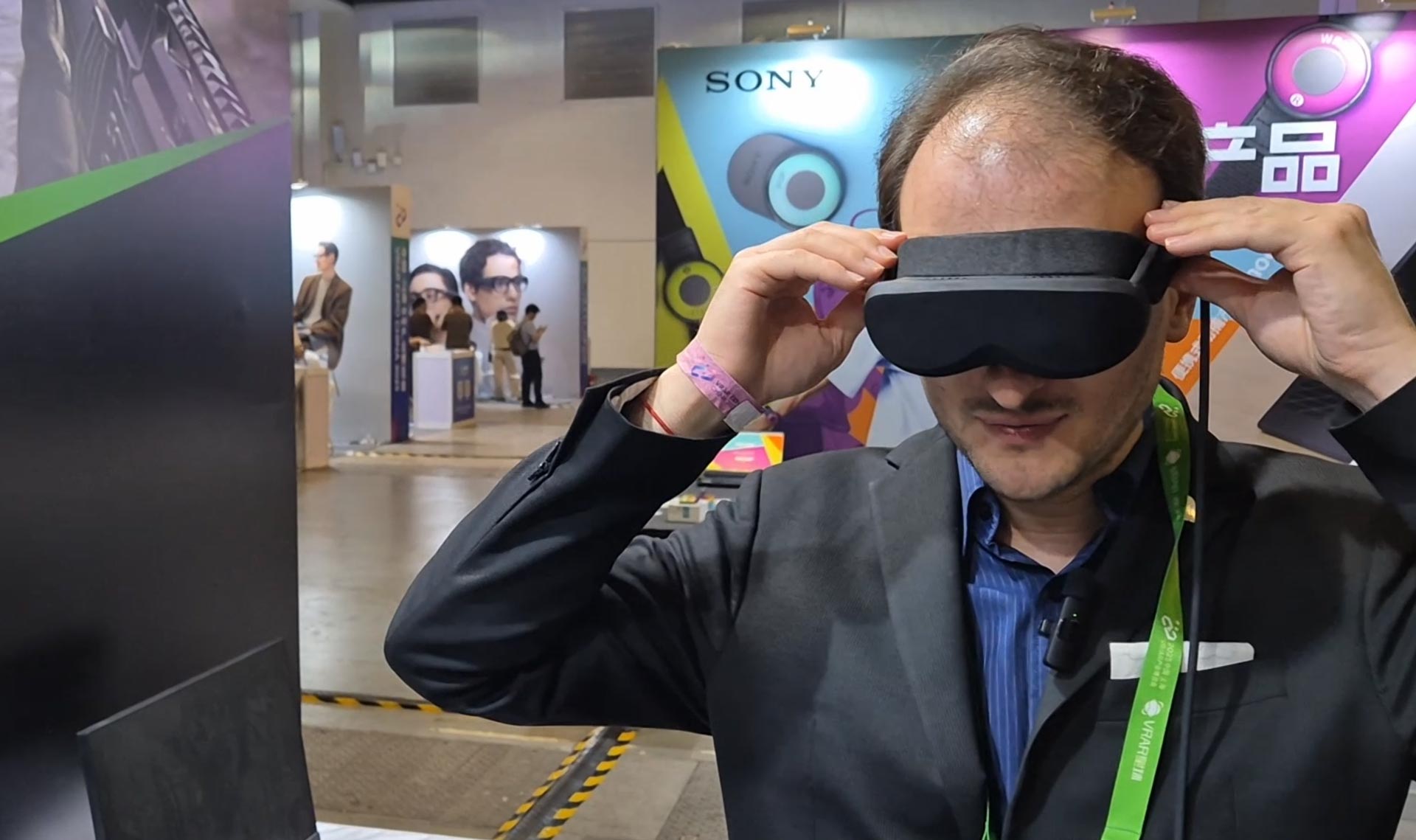What the EU Digital Markets Act may mean for XR
A few days ago, the European Parliament has passed the law of the Digital Markets Act, which is meant to regulate the power of the American tech giants. It can be a game-changer for the whole digital world, so I thought it was worth sharing my thoughts about what it could mean for XR.
Digital Markets Act
The Digital Markets Act is a law that the European Parliament and Commission are discussing since 2020 and has the purpose of limiting the excessive power of the major tech giants like Apple, Microsoft, Amazon, Google, and Meta. In particular, it has been made to limit the unfair competition and data collection practices that these companies are carrying on since years. I guess it has also been made to limit the de-facto monopoly of US companies in the European territory, and it is perfectly in line with the worldwide trends of governments in limiting the power of technological companies (see what the Chinese government has done to the most popular tech giants there) and of countries to become more protective about their data (see the previous GDPR law in Europe).
Long story short, the DMA establishes that some companies that are called “gatekeepers” have rules to follow to guarantee they are not limiting the competition in their field. Gatekeepers are defined as companies with huge revenues (in the order of billions) in Europe, which have many EU users, a dominant position that is predicted to last over many years, and act as intermediaries between the users and other companies providing services. For instance, Apple is an example of a gatekeeper, since it is a trillionaire market leader, and acts as an intermediary between app developers and their users. The EU acknowledges the power of gatekeepers and while it doesn’t prohibit them from being market leaders (they deserved it, after all), it will enforce them to guarantee they don’t exploit their market leadership position to gain unfair advantages or limit the competition. For instance, when Apple prevented Fortnite to use its own in-app-purchases mechanics, it has imposed its power on the relationship between the developer and its users.
The DMA includes many interesting rules about privacy, safety, and fair competition which are going to change the digital landscape in Europe, and so probably in all of the Western worlds. The alternative for the companies that don’t want to comply is either to pay huge fines or abandon Europe, and these are two options the tech giants can’t afford to take. The law should enter into efficacy in the fall of 2022, and companies will have something like 6-12 months to comply with it. We can expect so all big tech companies to comply with it in 2023. Of course, as someone states, they will try to comply in the most malicious way possible, but I think that in general, we as users should have many benefits out of it.
But what does this DMA ask the “gatekeepers”? And why is this relevant to XR? Let me tell you what I think may be important for our ecosystem, and then I’ll leave you some references to further discover all the details of this important law.
Data privacy
DMA further enhances the privacy laws and expressly requires gatekeepers to not merge data from different services. So, if you are a Facebook user and a Whatsapp user at the same time, Meta shouldn’t theoretically cross-reference your data from one app to the other. Considering that data harvesting in VR and AR will be even more aggressive than on social media (remember that through eye-tracking it is possible to discover everything about a user), the more limitation there are on data usage, the better.
This means that it wouldn’t be possible to use the data of your Oculus Quest games and your Facebook account together, because they are two different services. But now there is a new Meta account for Quest, which removes the need for the Facebook account anyway… even if there are many unknowns about what a Meta account will mean in the future.
Fairer competition

This is in my opinion the most important part of the DMA: the laws contain a lot of rules that prevent dominant companies to lock out their potential competitors. And these are going to bring a little revolution for XR, too. Long story short, many rules are giving Epic Games what it hasn’t managed to obtain from its court case against Apple in the US.
First of all, it forces gatekeepers to not force users to only one store. Every platform should allow sideloading and eventually also other stores. This means that when the Apple headset will be released in 2023, probably it should allow for sideloading of applications. This would be something historical, since Apple has always prevented sideloading in every possible way with the excuse of “security” of its users. Something like Sidequest could maybe be possible also for the Apple Visor. Meta in the past prevented in its TOS (Term Of Service) to have secondary stores on the Meta Quest, but now it should allow them. And I guess this is also going to influence the lock of Meta towards cloud streaming services like Plutosphere: the gatekeeping it is having towards these services goes against fair competition rules. In fact, Meta is preventing these services just because if people play with them, they don’t play with the apps on the Quest store anymore, plus these services are coming before the upcoming Meta XR Cloud Streaming service (codenamed Avalanche according to some rumors). This means that most probably Meta should allow these and other apps which are now locked.
Then it forces gatekeepers not to oblige developers to use their platform tools in their relationship with the users. This means that Apple can’t force Fortnite to use the App Store In-App-Purchase system to sell coins to its users. And the same holds for Google, which is applying similar restrictions. Every developer should be able to use whatever system he wants to sell stuff to his users. Opening in-app purchases may have interesting consequences, but finally, it frees us developers to sell our items however we see fit and not have to pay a -30% fee for whatever we do in an application. However, I think that platform holders will need to find a compromise on this because a strict application of this rule would mean the shut down of all the stores: all developers would just put every app on the stores for free, with all features to be bought as IAP on external websites to avoid paying the stores fee, making the stores having zero revenues. Probably will be found a compromise on this, like for instance that developers will be able to use external services but still have to pay a fee to the store owners for every transaction. I don’t know, I guess we will see. But this is a historical decision, and will also influence all future “metaverse” development. If the platforms can’t force developers anymore to use their tools and their payment systems, the future “metaverse” will be more open too, and platform owners won’t be able to exploit completely their content creators and have full economic power over them.
Furthermore, gatekeepers can’t favor their products in search results, so looking for apps on the Quest store won’t let Meta put its apps in the first positions. And the law doesn’t also let platform owners use the data they collect to unfairly compete with the other operators in the market. Here probably the main target was Amazon, which used to create cheap Amazon Basics products out of the most successful items on the platform and put them under the spotlight during searches. But also Meta has been criticized in the past for unfair competition practices in its store with the other developers, especially when it created clones of successful services (see the cases of YUR or Virtual Desktop).
Last but not the least, is that gatekeepers can’t pre-install on the device some apps that compete with other market players and can’t create un-installable apps. Here Apple may have a hard time imposing its browser on the Apple headset.
Interoperability

The law also mentions “interoperability” and here things become very interesting for our future. It forces gatekeepers to have interoperable services with third parties. This means, for instance, that a new small messaging platform may have guaranteed the possibility of interoperating with Facebook Messenger, so the users of this small platform may exchange messages and files with Messenger users. We are talking about interoperability across messaging apps. This will give users greater choice and avoid the so-called ‘lock-in’ effect where they are restricted to one app or platform.
Reading this, immediately a light bulb turned in my head: we always say that it’s hard that the M-world will be interoperable because even now there is no interoperability between messaging services and social networks. But this law may require that tech giants find a way to make their messaging services interoperable, and this thing can evolve in the long run as interoperability between different metaverse platforms. It would be a very interesting step forward for us users, and it would be impressive if it happens now, with the currently most used apps on mobile phones. Evaluating how to make interoperability on text, vocal messages and files could be a small test bed to experiment on how to integrate interoperability also on a more complex scale like one of the 3D worlds.
I know I’m a bit flying high with this, but let me dream a bit :). This could really be a historical moment where an institution forces tech giants to open up their walled gardens completely, for now and the future. It can have really long-term consequences.
Final remarks
I think the EU DMA is an important law that makes the current digital market more fair and open. A law about fair competition was needed for a lot of time and many developers already asked for it many times, and finally we have been heard. This will have consequences also in the VR field, and as I have hinted, also in the long run in the development of the “metaverse”.
But of course, mine are all speculations. The reality may be different than expected: some companies may decide to pay the fines and keep doing their practices; others may maliciously comply with the law, finding ways so that at the end of the day the situation doesn’t change much (e.g. sideloading is allowed but is very difficult to do, so many people don’t do it anyway): remember that users are lazy, so if companies manage to create a path of least resistance at their advantage, they win regardless. It may also happen that the law will lead to unexpected consequences, like the fragmentation of apps amongst stores, as is happening with PC games now, which makes the usability of the devices worse. Or that tech giants don’t invest anymore in technologies that are not profitable anymore after this law (e.g. if stores are not profitable anymore, platform holders won’t invest in them much anymore).
So, let’s see what is going to happen. But I think that anyway this law was necessary and may have interesting outcomes for us in the field. And I’m happy that all of this is happening in my continent.
References
You can read more about the Digital Markets Act from these sources:
- Digital Markets Acts on the EU Commission website
- Digital Markets Acts on Wikipedia
- GameIndustryBiz explains DMA
- GameIndustryBiz on the consequences of DMA
- A post on DMA which explicitly talks about the interoperability of the messaging services
- DDay.it on the consequences of DMA over Apple (article in Italian, shared by Francesco Ronchi)
(Header image by MPD01605, from Wikipedia)
Disclaimer: this blog contains advertisement and affiliate links to sustain itself. If you click on an affiliate link, I'll be very happy because I'll earn a small commission on your purchase. You can find my boring full disclosure here.



